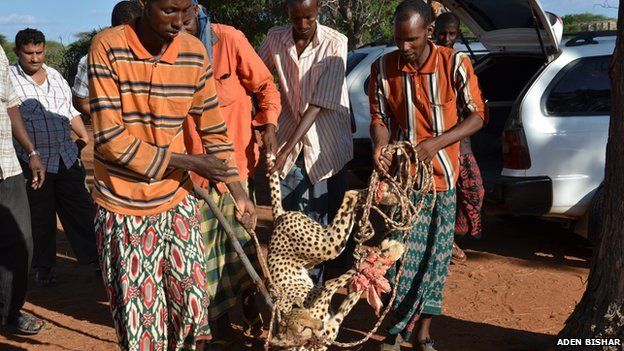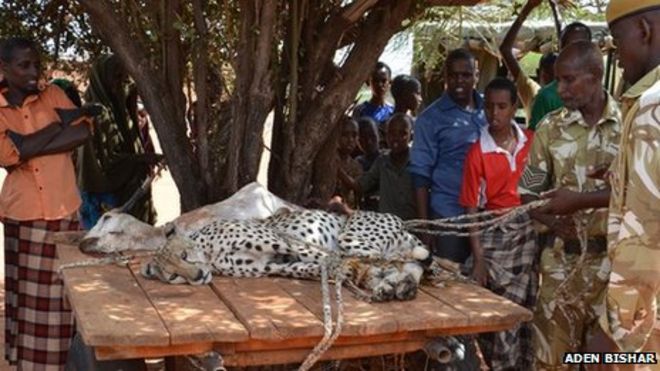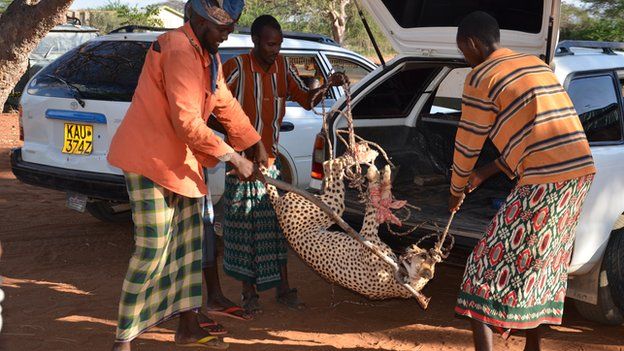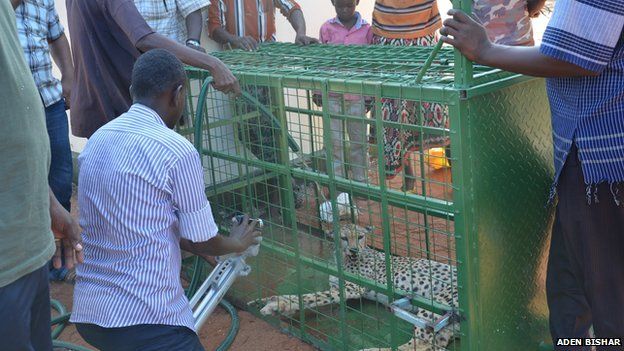
Human-wildlife conflict, is a growing problem in today’s crowded world. In Kenya, for instance, with much of the wildlife living outside protected areas, one of the real challenges to conservation is how to enhance and sustain coexistence between people and wild animals.
Four villagers in north-east Kenya have chased down and captured two cheetahs which were killing their goats.
The owner of the goats told the BBC that the cheetahs had been picking off his animals one by one, day by day.
The men waited until the hottest part of the day before launching the chase over a distance of four miles (6.4km).

The cheetahs got so tired they could not run any more. The villagers captured them alive and handed them over to the Kenya Wildlife Service.
“I need compensation from them because the cheetahs killed most of my goats,” Nur Osman Hassan told the BBC’s Somali Service.
Correspondents say livestock is the backbone of the economy for the Kenyan-Somali community living in the arid north-east of Kenya.
Cheetahs are the fastest-running animals on the planet and can reach speeds of at least 104km/h (64mph).

Mr Hassan, from a village near Wajir town, said the cheetahs were attacking his goat herd over several weeks.
“These cheetahs killed 15 of my goats – they were coming to my house daily to kill my goats,” he said.
He said he decided to return to his village to organise their capture at a time of day when cheetahs get very tired and usually rest in shade.

“I was sipping a cup of tea when I saw them killing another goat,” he said, explaining that this was early in the morning.
He said he waited until several hours later when the sun was high to go after them.
“I called some youths and we ran after them,” he said.
“We caught them and we brought them to the local authorities.”